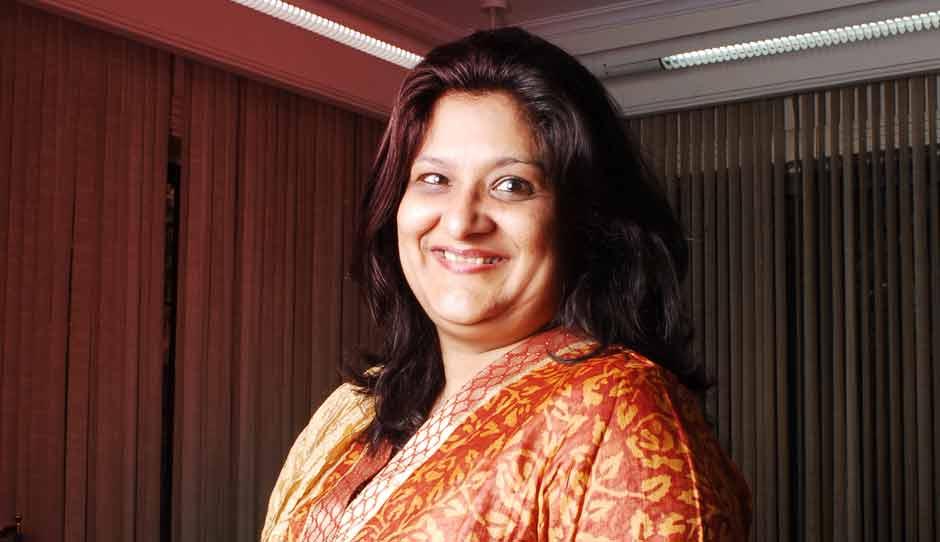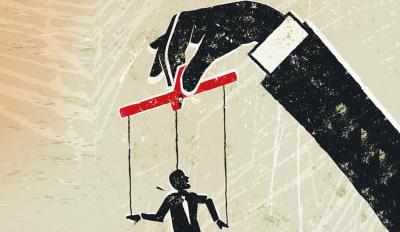From Entrepreneur to Employee: Rachna Aggarwal
- BY Shreyasi Singh
 In People
In People 16323
16323 0
0

Rachna Aggarwal was one of the eight co-founders of Indus League Clothing when the apparel company was born in November 1998. Today, Indus League is a Rs600-crore plus venture with an enviable felicity for creating home grown clothing brands including well-known names like Indigo Nation, Jealous, Scullers, Urbana and Urban Yoga. In the journey of fashioning these brands, Aggarwal’s personal trajectory has been very interestingly patterned. Today, as the CEO of the company she helped found, which was later acquired by Kishore Biyani’s Future Ventures in 2005, she wears both hats—that of a professional CEO and an entrepreneur with remarkable ease. MYB met her for a chat on life after the acquisition, and her improbable reverse journey.
Indus League has always been, and continues to run quite independently.
Having a founding team of eight people must have been a tough balance. But, take us back to what it felt to be acquired, and work as an employee after Future Group acquired Indus League in 2005?
By the time the Future Group acquired us, two or three of the co-founders had already moved on to do different things. The rest of us who were there were well integrated without any problem at all. And, it’s not like I became the CEO right away. So, in some ways things didn’t change much for me in the beginning. First, Shriram Shrinivasan, the nucleus of the founding team, was here for a year or so. After that, K. K. Pant became the CEO. The interaction with the Future Group has always flown and been managed from the very top, so in the first couple of years, I wasn’t involved. It changed for me when I became the CEO in 2008. Even now, very few people in the company interact very closely with the Future Group. It’s for me to filter back the conversations, and strategies to Indus League. Actually, Indus League has always been, and continues to run quite independently.
Rachna Aggarwal on the trajectory that Indus League Clothing has seen and why she believes the association with Future Ventures is going to help take that growth curve higher.
Has that freedom—to function as an independent entity —been a reason for your being able to continue to build and grow Indus League as you would a company you owned directly? Did you have any apprehensions that staying on in the company might not work out for you?
Today, out of the original eight founders, I’m the only one left. Indus League is too much in my blood now. I doubt I can leave it. Of course, there are apprehensions when you’re merging with a larger entity—what’s going to happen, will things remain the same, or will everything-as-one-knows-it will be history? There were rumours also, such as will Indus League shift to Mumbai, and so on. But, that’s part and parcel of every change. It’s the noise around change, and it subsides soon enough.
Honestly, Future Group has been very willing to listen to our point of view. Through these past years, we’ve only got suggestions, rarely ever a diktat. They have allowed us to maintain a separate identity. We’re still called Indus League, and have a lot of freedom and independence to continue the Indus League culture, so to speak. Actually, it’s the best of both worlds because in terms of productivity, we completely benefit from the advantages a company like Future Group can afford, such as having an IT platform like SAP. We get a lot of economies of scale, and experience in operations—in terms of fabric buys, negotiations and logistics support. Yet, in a lot of areas, Indus League as an independent entity has complete latitude, especially in terms of thinking about the brand, it’s positioning, having a strategy, and owning our own design studio. Actually, Future Ventures, a part of the Future Group, is almost like a mentoring organisation. Also, it helps that in a business like ours, neither being seen as Indus League or Future Ventures is really relevant to the market. Our customers only care about the brand. I don’t think they even know that Manchester United and Jealous 21 are owned by the same company. It doesn’t matter to them because their connect is only with the brand, say Indigo Nation, Scullers, or whatever else.
How important was it to choose the right larger entity to become a part of? Has the structure of Future Ventures helped in managing this seamless “entrepreneur-employee” role in any way?
Actually, being part of Future Ventures has increased our entrepreneurial ability, especially when it comes to risk-taking. The greatest thing about Future Group, and especially Kishore ji as a boss is that he pushes you to stay an entrepreneur. Very few people really give you the freedom to make mistakes. There’s a lot of energy within the group to always move forward, innovate and try something new. There really is no harm in trying something out, figuring out quickly that it didn’t work, and of course correct or shut it down and move on. The point is you shouldn’t continue with something that has been a mistake from the very beginning. And, sometimes, you don’t know till you try. As long as you are on track in terms of the larger vision that has been shared, taking a few side paths is actually encouraged. Also, my experience as a professional manager at Madura Garments, before joining Indus League, helped me a lot. Even there, we were given a lot of freedom.
In fact, I still feel very deeply connected to Allen Solly and Van Heusen as brands. I’ve created those. So, I’ve experienced what it’s like to be an entrepreneur in a larger set-up before. It also depends on how you view your role as an entrepreneur. Acquisitions can lead to different types of stories for different people—you can choose to stay in the business, or take the money and start out again. For example, my husband is one of those serial entrepreneurs who enjoys the process of setting up a business, regardless of whose money it is. The minute a venture he’s worked on has been set up, reaches a steady stage, and is preparing to move into a mode of operational efficiency and refining operational processes, he simply moves on. He worked to set up Madura Coats, Indus League and Reliance Trends. In each case, once these businesses reached a stable ground, he moved on. On the other hand, I enjoy a mix of both stages—of setting it up initially, and scaling up the business. Indus League continues to give me a chance to do that. Nearly 20 per cent of my time goes into conceptualising or starting something new, whether it was the Manchester United launch, or before that, bringing Daniel Hescheter, an upmarket French brand to India. As long as a substantial part of your time goes in creating new things, it can remain exciting as an entrepreneur.
The greatest thing about Future Group, and especially Kishoreji as a boss is that he pushes you to stay an entrepreneur." - Rachna Aggarwal
What were some of the thornier issues of integrating?
With any change, there’s always some heartburn, or catch. Honestly, one of the most painful changes was to work more than five days a week. Now, we work two Saturdays a month. That isn’t a pleasant change. But, when you step back, and think, you realise that you are a retail organisation, and your front end anyway works seven days a week, so can you afford to not be there? It’s simple—you have to keep the bigger picture in mind. If you know why a certain change was made, and what intends to be achieved from that change, you’ll find a way to make it work.




























Add new comment